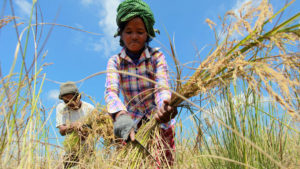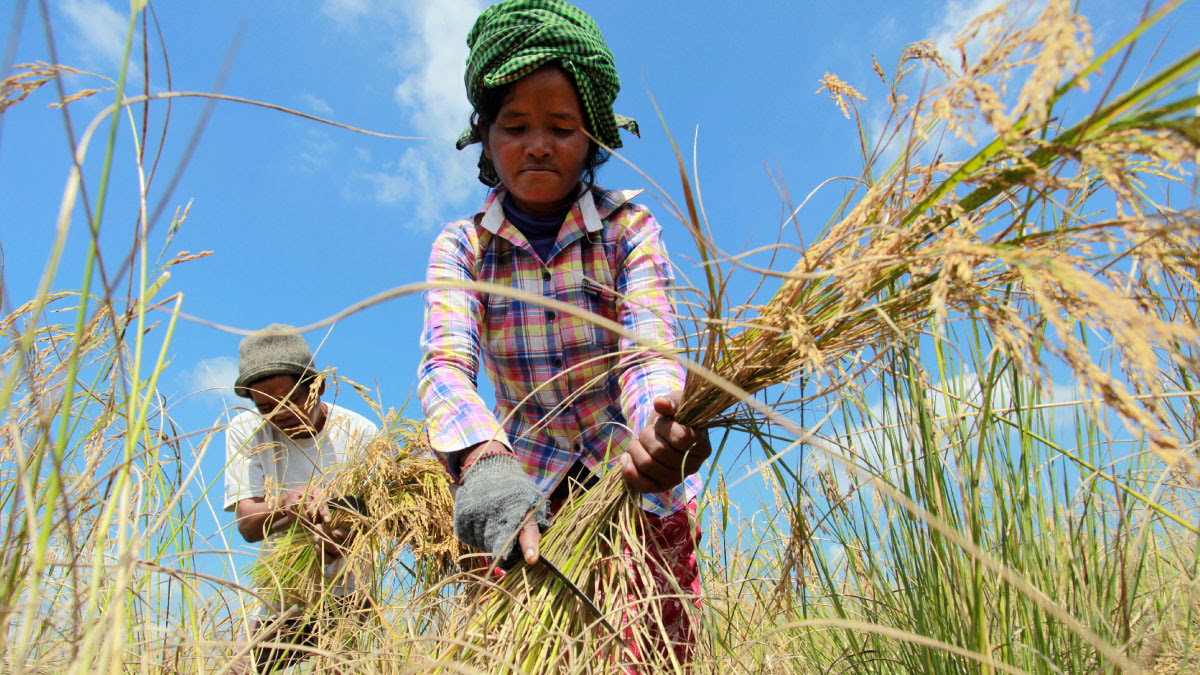
The technology that runs cryptocurrencies such as bitcoin could be used in many applications that contribute to sustainable development, from crop insurance to vaccine supply chains.
Aya Miyaguchi, executive director of the Ethereum Foundation, is committed to using blockchain to change people’s lives.
Her foundation has helped the UN children’s agency (UNICEF) use the frontier technology to create a fund to raise donations of cryptocurrencies, such as bitcoin, for its work.
She believes blockchain could revolutionize development work by increasing financial transparency and accountability and by generating important savings in time and fees.
“Together with UNICEF, we’re harnessing the promise of blockchain to improve access to basic needs, rights, and resources,” she said. “Our ecosystem has taken the lead in many areas and we continue to focus on where we’re needed the most.”
In simple terms, blockchain creates a decentralized and secure digital ledger of all transactions across a peer-to-peer network. It’s the technology that underlies cryptocurrency and its application is expanding widely in our increasingly digitalized world.
Ms. Miyaguchi’s team has developed the second-most valuable blockchain network – Ethereum. Its native cryptocurrency, ether, is the second-largest digital coin behind bitcoin.
From crop insurance to COVID-19 supply chains
Besides the UNICEF CryptoFund, the Ethereum Foundation has also helped create OS City, a platform that builds blockchain solutions for governments to increase trust and reduce corruption, deploying the game-changing technology for the benefit of the public sector.
The foundation is also supporting a project aimed at providing crop insurance to smallholder farmers in Kenya based on blockchain technology.
Other Ethereum-powered projects are making their mark in areas such as COVID-19 vaccine supply chains, healthcare, cash assistance and circular economic systems, Ms. Miyaguchi told the UN Commission on Science and Technology for Development (CSTD) at its inter-sessional meeting on 20 January.
Hosted by UNCTAD, the CSTD is the UN focal point for science, technology and innovation (STI) for development. Its sessions provide foresight about critical trends in STI in key sectors of the economy, drawing attention to emerging and disruptive technologies.
1.4 million people with cryptocurrencies in Africa
Other experts on the CSTD inter-session panel underlined the fast-growing adoption of the blockchain technology to spur development in various parts of the world.
Yele Bademosi, chief executive officer of Bundle Africa and founding partner at Microtraction, highlighted the rising demand in Africa for cryptocurrencies and other blockchain-enabled products.
According to Mr. Bademosi, in Africa the technology is mainly applied in international transactions and used as a means of exchange and a store of value. It also powers mobile money transfer services, enhancing financial inclusion on the continent.
“A young population, high mobile connection penetration and well-established infrastructure are the main drivers contributing to the accelerating adoption of blockchain and digital currencies in Africa,” Mr. Bademosi said.
He said blockchain-enabled services have boundless prospects on the continent and could help enhance economic prosperity, as there are 1.4 million people in Africa holding cryptocurrencies.
Promising but dissociated from real economy
An UNCTAD paper says blockchain technology has the potential to be used in many applications that could contribute to sustainable development, but its innovation currently focuses on financial applications dissociated from the real economy.
“For most of the innovations in this field, the goal is to profit by extracting rents through financial intermediation and speculative gains in crypto-financial assets instead of creating real value through new products and services,” the paper says.
It warns that such behaviour, combined with the lack of regulation and the swift pace of innovation, is a recipe for financial bubbles and bursts.
For instance, in early February, the price of bitcoin rose to never-before-seen highs, jumping to nearly $60,000 per bitcoin, then it fell to around $50,000 a few weeks later, but it may still climb higher.
A wave not to be missed
UNCTAD’s Technology and Innovation Report 2021 says frontier technologies such as blockchain could promote development if governments implement policies that maximize their potential benefits, while mitigating harmful outcomes.
Otherwise, they could worsen existing inequalities, as has occurred with previous waves of technological change.
The report observes that blockchain is potentially a key technology in a new technological paradigm of increasing automation and the integration of physical and virtual worlds, together with artificial intelligence, robots and gene editing, among others.
In such a scenario of very early stages of the installation period of this new paradigm, UNCTAD notes, the real long-impact of these technologies on the economy, societies and environment remains unclear.
Similar moments in previous technological revolutions offered windows of opportunity for some developing countries to catch up and others to forge ahead.
UNCTAD therefore urges governments of developing countries to strengthen their innovation systems to strategically position themselves to benefit from this new wave of technological change.
In the report, UNCTAD outlines how developing countries can catch up and forge ahead on blockchain and other frontier technologies, while continuing to diversify their production bases.
It says despite some negative realities associated with these technologies, such as their potential to worsen inequality, widen the digital divide and disrupt socio-political cohesion, they could be transformative in achieving the UN’s Sustainable Development Goals (SDGs).
African Eye Report


